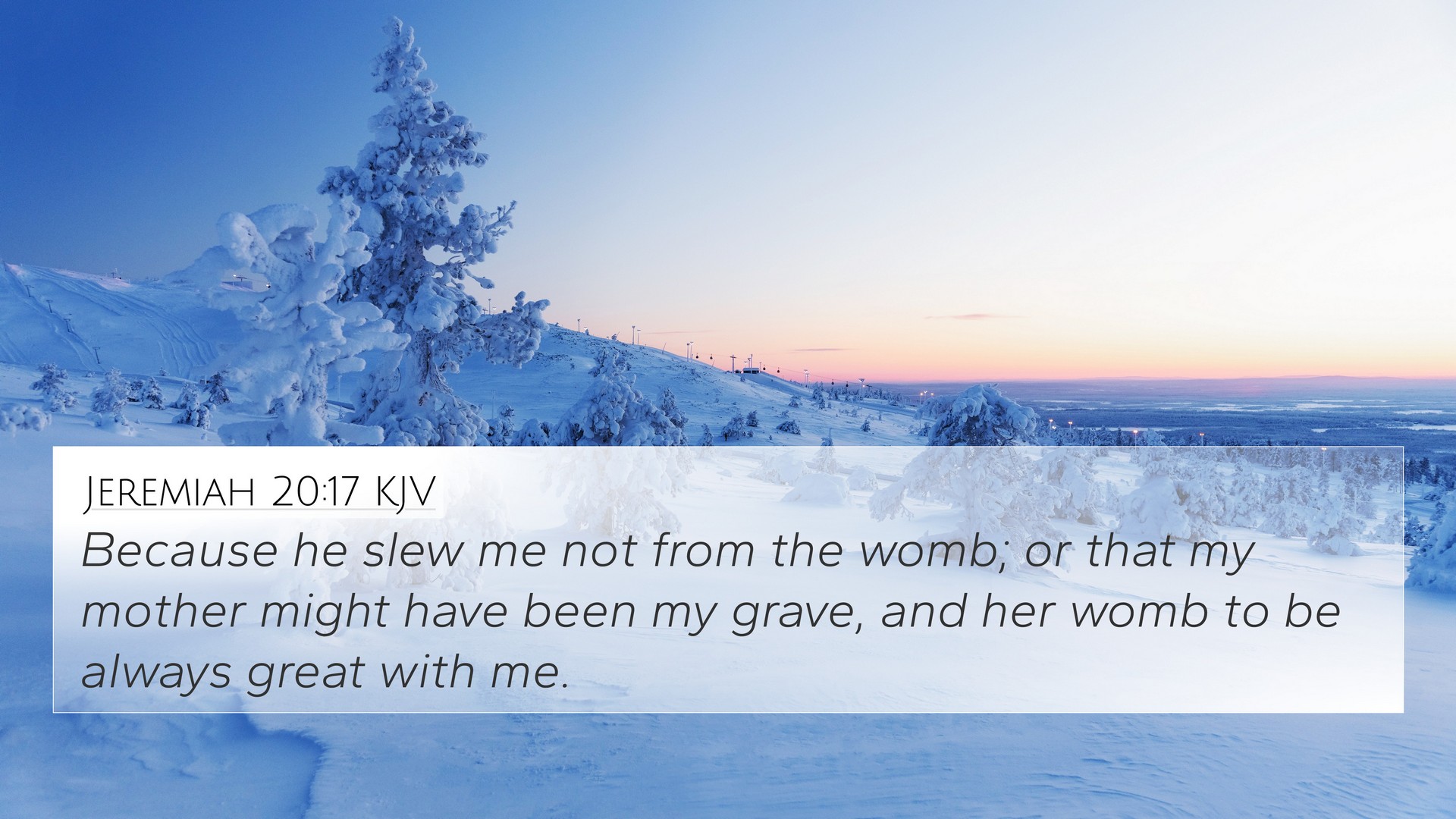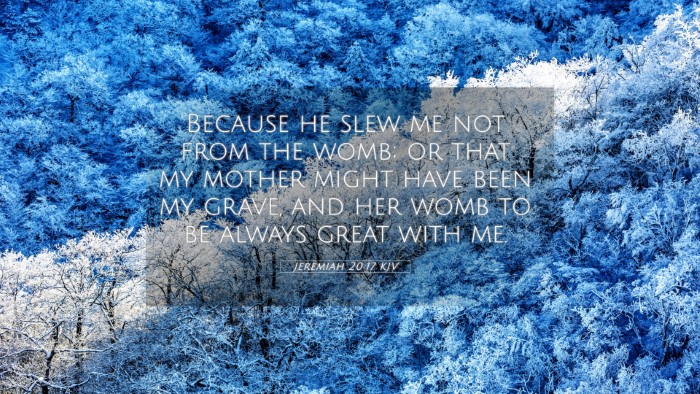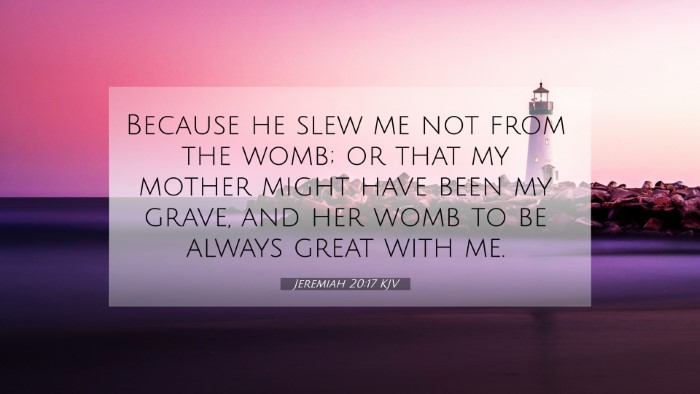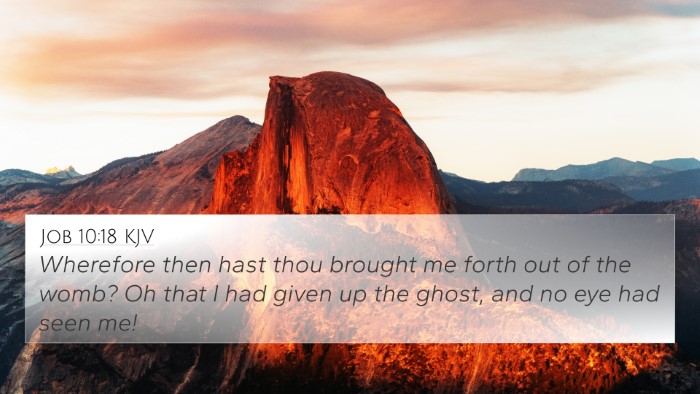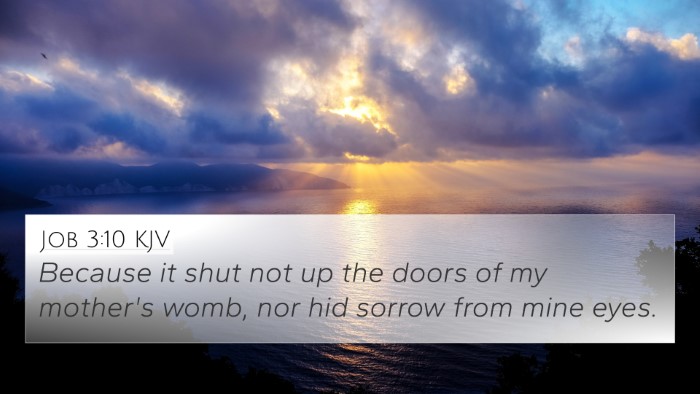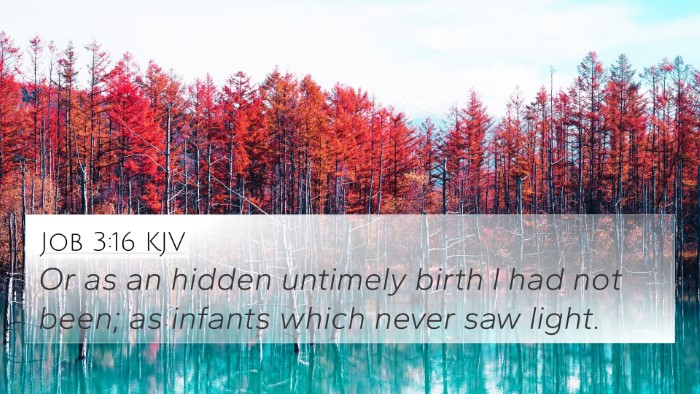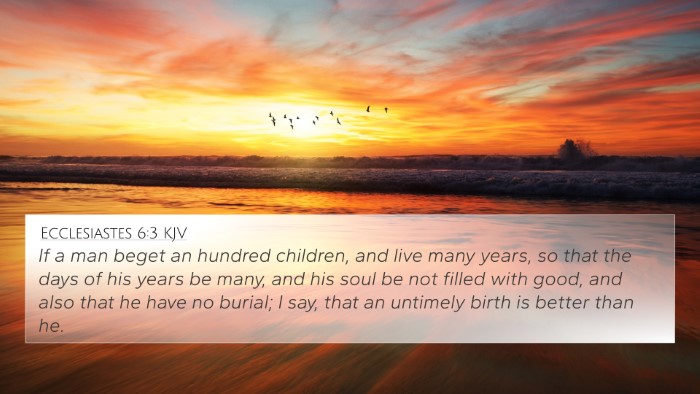Understanding Jeremiah 20:17
Bible Verse: Jeremiah 20:17 - "Because he killed me not from the womb; or that my mother might have been my grave, and her womb to be always great with me."
This verse is a poignant expression of Jeremiah's deep lament about his existence and the suffering he experiences as a prophet. The verse shows a profound sense of anguish and questions about the purpose of life amidst pain. Jeremiah reflects on the tragedy of being born only to face relentless hardship and opposition in his divine calling as a prophet.
Commentary Insights
This analysis combines insights from renowned commentators:
- Matthew Henry: Henry emphasizes Jeremiah's sorrow, expressing the idea that the prophet wished he had never been born to endure the perpetual distress that comes from delivering God's messages. He notes that this lamentation reflects the emotional struggles of true prophets who face rejection and persecution.
- Albert Barnes: Barnes interprets this verse as a deep expression of despair. He suggests that Jeremiah articulates a wish that he had died at birth instead of enduring a life marked by suffering and isolation as a messenger of God. Barnes connects this lament to the broader theme of the challenges faced by those who are called to serve God faithfully.
- Adam Clarke: Clarke's commentary indicates that Jeremiah's lament is indicative of the profound internal conflict faced by prophets. He elaborates on the concept of prophetic suffering and how such experiences are often intertwined with profound emotions, leading to intense existential questioning.
Thematic Connections
Jeremiah 20:17 resonates with several key themes found throughout Scripture, including:
- The suffering of prophets (e.g., Ezekiel 3:14, Matthew 5:12)
- The purposes of God in human suffering (e.g., Romans 8:28, 2 Corinthians 1:5)
- The value of life amidst trials (e.g., Job 3:11-12, Psalm 139:13-16)
Cross-References for Jeremiah 20:17
Here are some key Bible verses that relate to Jeremiah 20:17, providing avenues for comparative biblical analysis:
- Job 3:11-12: "Why did I not perish at birth, and die as I came from the womb?"
- Psalms 51:5: "Surely I was sinful at birth, sinful from the time my mother conceived me."
- Isaiah 49:1: "Before I was born the Lord called me; from my mother’s womb he has named my name."
- Luke 1:15: "For he will be great in the sight of the Lord; he will never take wine or other fermented drink, and he will be filled with the Holy Spirit even before he is born."
- Galatians 1:15: "But when God, who set me apart from my mother’s womb and called me by his grace, was pleased to reveal his Son in me..."
- Matthew 27:3-5: "When Judas, who had betrayed him, saw that Jesus was condemned, he was seized with remorse and returned the thirty silver coins... and went away and hanged himself."
- Revelation 3:19: "Those whom I love I rebuke and discipline. So be earnest and repent."
People Seeking Understanding
Many individuals seeking to understand Jeremiah 20:17 may look for:
- Similarities between Jeremiah's lament and Job's suffering.
- Connections between the trials of Old Testament prophets and New Testament apostles.
- Comparative studies of prophetic books reflecting on divine calling and personal anguish.
- Resources for effective Bible cross-referencing for deeper scriptural understanding.
Conclusion
Jeremiah 20:17 invites believers to reflect on the complexities of prophetic ministry, the nature of suffering, and the interplay of life and death. By studying cross-references and thematic connections within Scripture, we gain a richer understanding of God's purpose in our tribulations and the hope that underlies the prophetic call. Tools for Bible cross-referencing, such as concordances and comparative studies, can enhance this journey towards comprehension.
